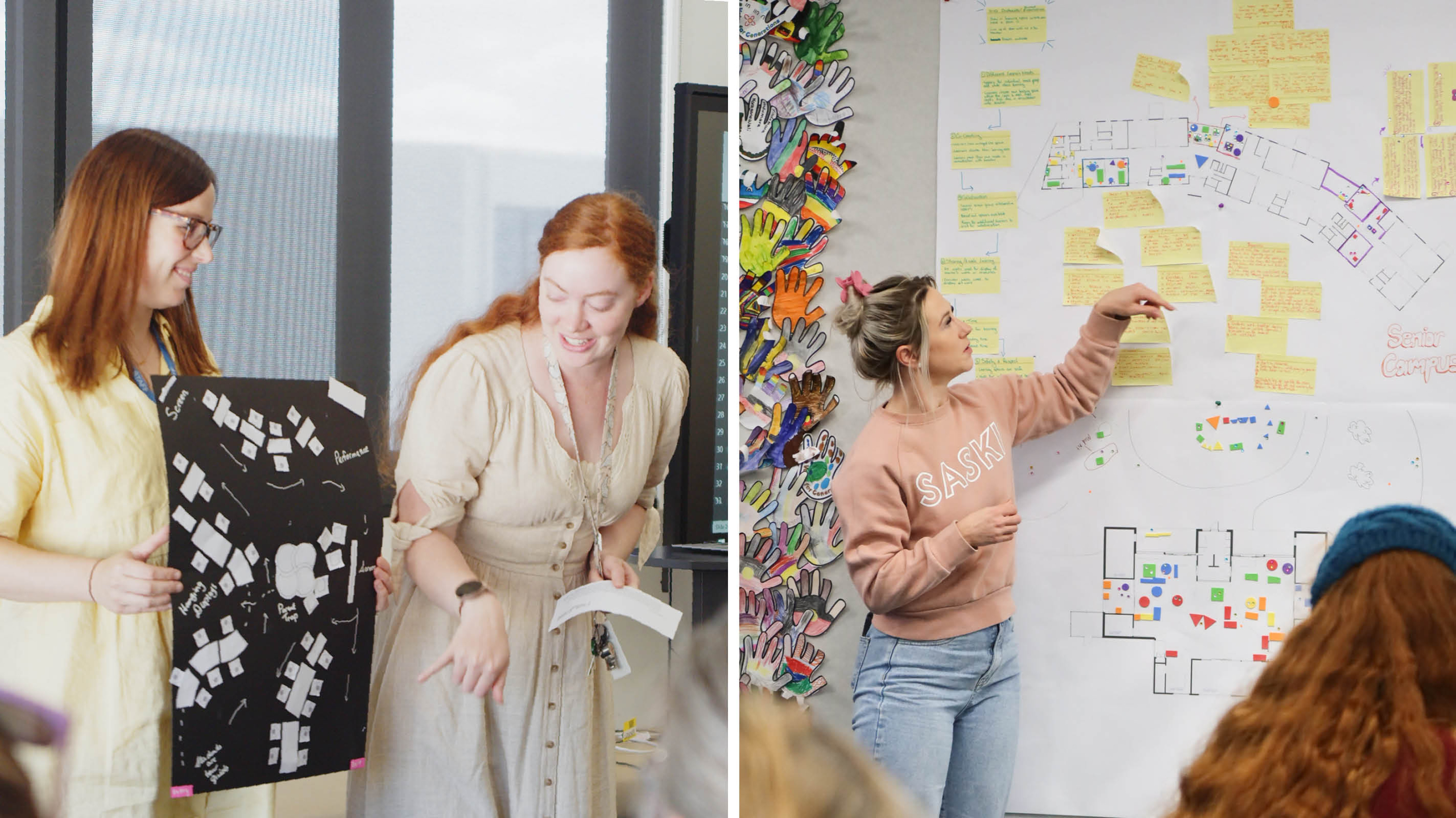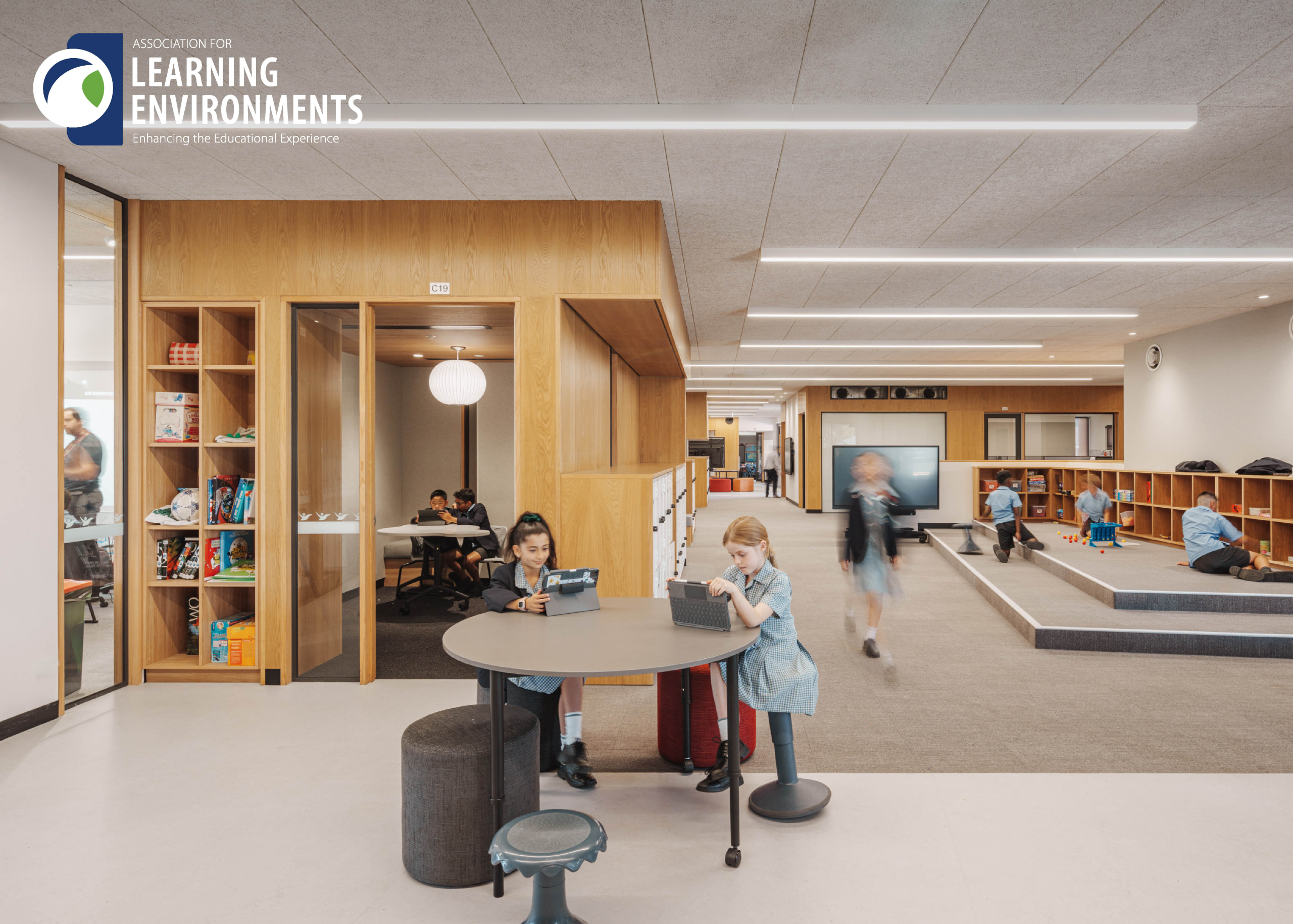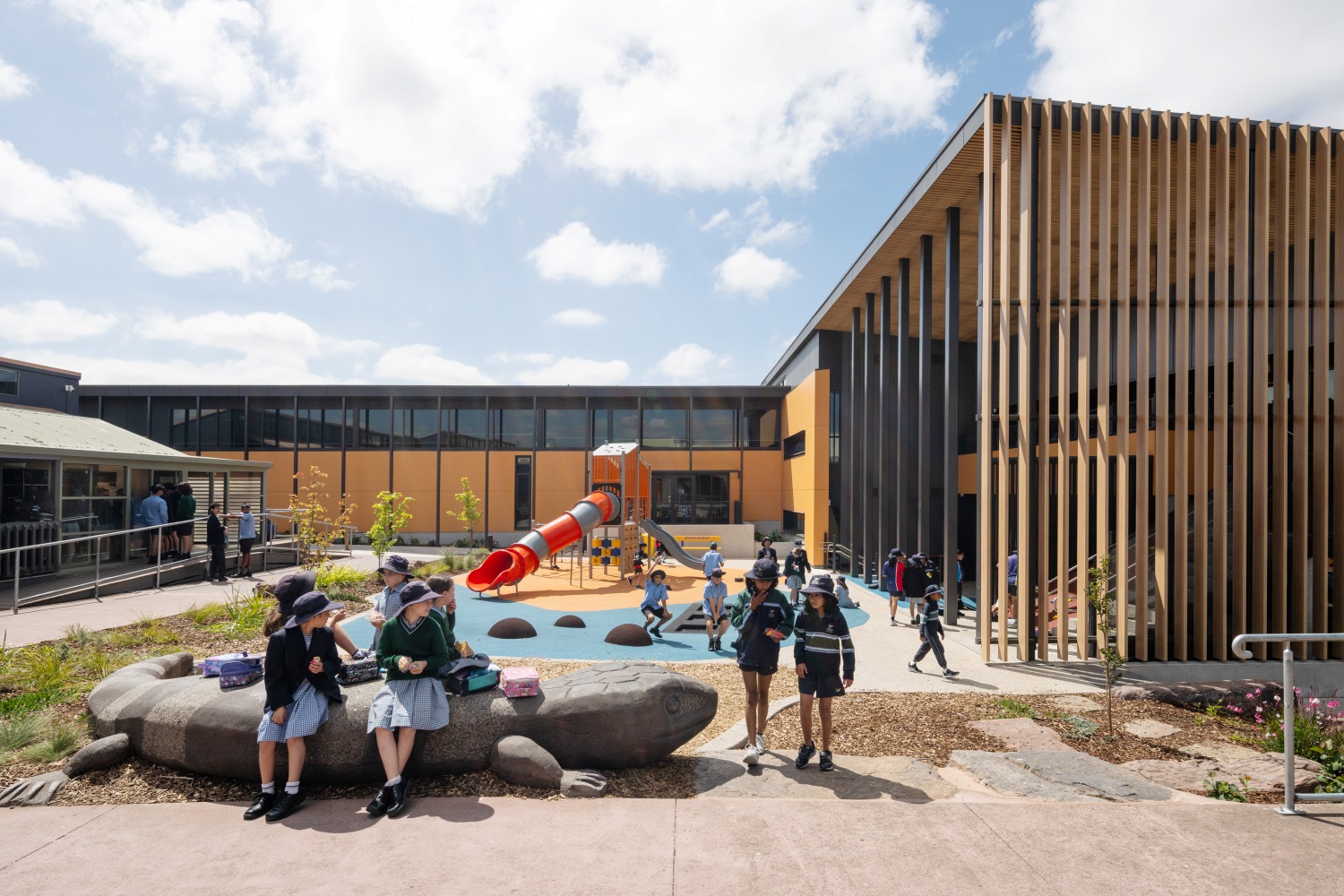We’re thrilled to share that Hayball’s leadership in the Education sector was further recognised last week in Melbourne with three awards across two projects in this year’s Learning Environments Australasia Design Awards. The LEAD awards program celebrates best practice in educational design across the country.
- Overall Winner – Aitken College, Cumberland (Junior School Years 3-6)
- Winner, New Building/s or Facilities – Large – Aitken College, Cumberland (Junior School Years 3-6)
- Winner, Innovative Education Initiative – Enhancing Spatial Literacy at Evelyn Scott School
Aitken College, Cumberland
A new junior school building at Aitken College in Greenvale, Victoria, was the joint winner of the New Building (over $10m) category and went on to receive the ultimate ‘Overall Winner’ prize across all categories. This is an incredible achievement for all involved, particularly given the briefing and design phases of the project were completed during the pandemic, while Hayball and the school navigated the challenges of remote working. The jury celebrated the expert tuning of spaces to achieve the school’s pedagogical objectives, describing the building in their citation as being ‘designed to challenge and nurture the inquisitive and developing minds of primary school children in a truly innovative learning environment.’
Jury Citation:
“A comprehensive planning process underpinned the Aitken College project. It involved and engaged stakeholders and school leadership, and articulated a pedagogical vision formalised as part of an overall masterplan. The project guiding design principles represent a solid foundation for the design features, which are intrinsically connected to the educational brief, support collaboration, different teaching styles and learning activities.
Design resolution from the macro scale of the masterplan to intimate spaces for the individual is deftly handled and well resolved. The facility provides a variety of formal and informal learning environments, organised to provide clear zoning, interconnection, and flexibility.
The building has two precincts, a shared specialist learning hub and a common learning space with related neighbourhood learning areas. The gallery space linking these precincts and the building entrance is multifunctional. It is serving as entry foyer, primary social space, exhibition area, and a space for project learning. This is typical of the approach where all spaces are hardworking providing multiple modes for teaching and learning.
The spatial layout reflects a hierarchy of learning communities. Students can seamlessly interact and identify with the whole learning community with well-designed and carefully placed common facilities. Adjacent learning commons, each with two learning neighbourhoods, accommodate year groups and individual classes. A fine grain of nooks and small pods accommodate small groups or individuals. The gallery hints at connection to the wider community beyond.”

Enhancing Spatial Literacy at Evelyn Scott School
Collaboration: Hayball, Monash University and Evelyn Scott School
The Innovative Education Initiative category is awarded to projects that showcase significant contributions to learning environments by schools, educators, students, designers, or community organisations. Our collaboration with Dr Dion Tuckwell from Monash University and Jackie Vaughan, the Evelyn Scott School Principal, on the newly completed Evelyn Scott School in the ACT was awarded for a remarkable project in which we worked directly with teachers to enhance their spatial literacy as they grappled with delivering curriculum in a new learning environment.
Jury Citation:
“This Innovative Education Initiative comprises an exciting professional learning programme based on the notion of a participatory action research cycle to create evidence-based activation of the school’s new learning spaces, and thus building reciprocal coherence across curriculum, learning and teaching, and spaces.
Professional learning is key to the use of spaces for the benefit of effective, innovative, pedagogical practice that enhances learning. This submission demonstrates that education can be a dynamic, multi-faceted and democratic platform for future focussed change with innovative use of space as a vital component.
Extensive planning included engagement with experts and users and was contextualised to the school to ensure alignment with the school’s educational goals and culture.
Multiple pressures on projects can work against open transpicuousness, however, Evelyn Scott School operated in line with the principles and values of future focussed learning spaces. Thus, “Enhancing Spatial Literacy” functions collaboratively, is focussed on learning for students, operates transparently and equitably, ensures continuous improvement, and draws generously on multiple forms of knowledge.
A lively series of workshops was implemented improving outcomes with a comprehensive follow up program to support teachers. This included the use of feedback about how the building is enabling or constraining teachers’ individual and collective practice and promoting adaptation.
The depth of the POE is exceptional and reflects the level of enquiry the this is a team undertook as part of the project, not only from appointed academic consultants, but also from the day-to-day teachers and learners. Thus, a project that created innovation and addressed the essential processes of ensuring ongoing and relevant change.”
Huge congratulations to the Hayball team, our clients and collaborators who greatly contributed to the success of both projects.





